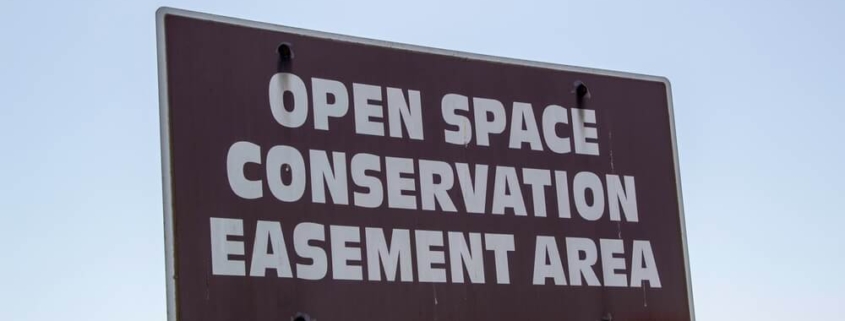Important Things to Know About Conservation Easements in Maryland
Easements serve several purposes, often granting access to neighbors, utility companies, and community members. Conservation easements are unique in their purpose and scope, serving to preserve the local natural habitat and environment. If you are considering donating or selling a conservation easement, or you’re looking into buying a home with an attached conservation easement, it’s crucial to know exactly what you are agreeing to and what your obligations are.
Learn more about conservation easements, and before you agree to anything, explore your options by calling Evans Law at 410-431-2599.
The Goal of Conservation Easements
Conservation agreements are put in place to protect and preserve certain natural elements of a piece of property. Easements may protect farmland, land containing natural resources, aesthetic views, certain soil makeup, or water access. The possible uses of a conservation easement are complex and varied, depending on the part of the state you live in, the conservation goals of the local government, and the history of your property.
Rights on Both Sides
Conservation easements are voluntary, allowing landowners to be part of local conservation efforts and programs. Agreements are generally between the landowner and either the local government or a land trust. Once an easement is created, it stays in place permanently unless both sides agree to terminate it.
There are two ways government agencies and land trusts can get landowners to agree to an easement: they may either purchase the easement and pay the landowner or get the landowner to donate it. Much depends on the agency’s budget and the landowner’s willingness to participate in conservation efforts.
Landowners retain substantial rights with a conservation easement. They still own the land and are free to use it in any way they wish, as long as that type of usage does not interfere with the agreement set forth in the easement documentation. For example, if an easement exists to preserve farmland, the property owner cannot then build on that land. If an easement seeks to protect a scenic view, homeowners cannot add extensions or additional buildings that would block that view.
The agency on the other side of the easement agreement largely benefits from the land being kept as it is. However, if the landowner takes steps to violate the easement agreement, the agency can take steps to block that action.
Who Can Access the Land?
An easement agreement does not automatically grant the agency access to the land. The goal is conservation, not access, so the agency simply has the right to keep the land as it is. However, some easement agreements do contain access rights. Agencies may pay additional money for access to the affected land. The property owners still have full access to their land.
Changing the Property
If the landowner wishes to make changes to their property, they must ensure that the intended changes are permitted within the scope of their easement agreement. They should start by reading their easement agreement in full and reaching out to the agency that holds the easement. This step is also made easier by consulting a real estate attorney in Maryland. A real estate attorney with extensive experience in easements, particularly those involving local agencies, will be able to explain the easement terms and the current project’s potential limitations.
It is crucial to discuss plans with an attorney and the agency holding the easement before making any significant changes to your property. Otherwise, you could violate your agreement and be forced to return the property to its previous state at your own expense.
Benefits of Conservation Easements
Those who agree to conservation easements often do so because they understand the value of preserving the character, history, or purpose of the land they own. It can be personally fulfilling to contribute to an important conservation mission. Additionally, there may be financial benefits associated with a conservation easement. The homeowner may be financially compensated or receive tax benefits when they donate an easement.
Discuss Your Real Estate Needs with Evans Law
Whether you are considering agreeing to an easement or buying land with an easement, it’s time to talk to the team at Evans Law. Call us at 410-431-2599 or send us a message online to schedule a consultation with our team.





